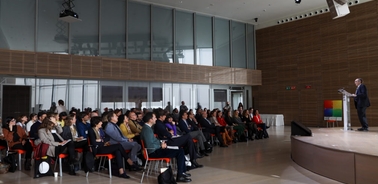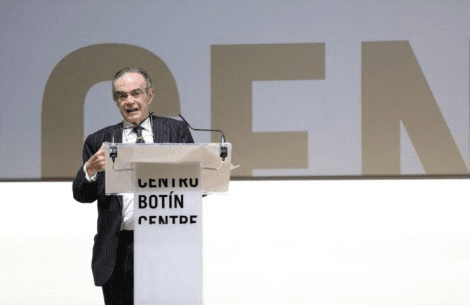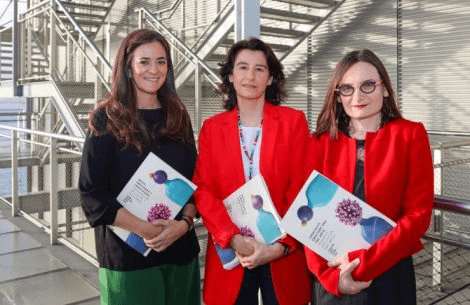- Home
- News And Events
- News
- Fundación Botín, Yale University And Ie University Confirm The Capacity Of Art And The Humanities To Drive Creativity
Fundación Botín, Yale University and IE University confirm the capacity of art and the humanities to drive creativity

IE Foundation and the Botin Foundation Creativity Indicator analyzes the role of culture and creativity in social and economic well-being. Photo: Belén de Benito.
The Botín Foundation, IE University and Yale University today explored the importance of humanities, art and emotions to boost creativity at a conference in the northern port city of Santander, where they presented “Arts, Emotions and Creativity” a report by the Botín Foundation and Yale University. The event also provided the opportunity to launch the Creativity Indicator, developed by IE University’s IE Foundation to measure the impact of art and culture on social and economic well-being. Following the presentation of the report, experts from the three institutions analyzed the importance of art and the humanities in education, their impact on people, and the potential for developing creativity.
The event was inaugurated by Diego del Alcázar Silvela, founder and President of IE University, and Iñigo Sáenz de Miera, Director General of the Botín Foundation, who highlighted the role of culture in society, noting “the Botín Center exists thanks to the conviction of our former president, Emilio Botín, who believed that few things contribute to human development and economic and social development as much as the arts”.
Diego del Alcázar Silvela added: “We live in a world in a state of constant upheaval, where one of the values that is being most affected is the humanities”. He also stressed the importance of education in promoting the creative process, noting: “Creativity is a phenomenon that is encouraged, but it has its own gifts, some of which are inherent to the person and others, possibly, taken from learning.”
Speaking at the launch of the Creativity Indicator, Catalina Tejero, Vice Dean of Arts & Humanities at IE University, described the initiative as “a very valuable instrument” that allows us to evaluate the impact of culture and creativity at an economic and social level.”
Joseph Fowler, Director of Arts and Culture at the World Economic Forum, and Mariagrazia Squicciarini, CEO of Human and Social Sciences at UNESCO, also participated in the event, discussing the importance of promoting creativity in the business world. Monica Kurtis, Director of the Movement Disorders Unit at Ruber International Hospital, Zorana Ivcevic, expert at the Yale University Center for Emotional Intelligence, and Patricia Gabaldón, Director of the Bachelor in Economics at IE University, analyzed the potential for developing creativity. The day ended with a visit to the exhibition of Mexican artist Damián Ortega and a gastronomic experience based on art and creativity designed by Jacobo Bergareche.

